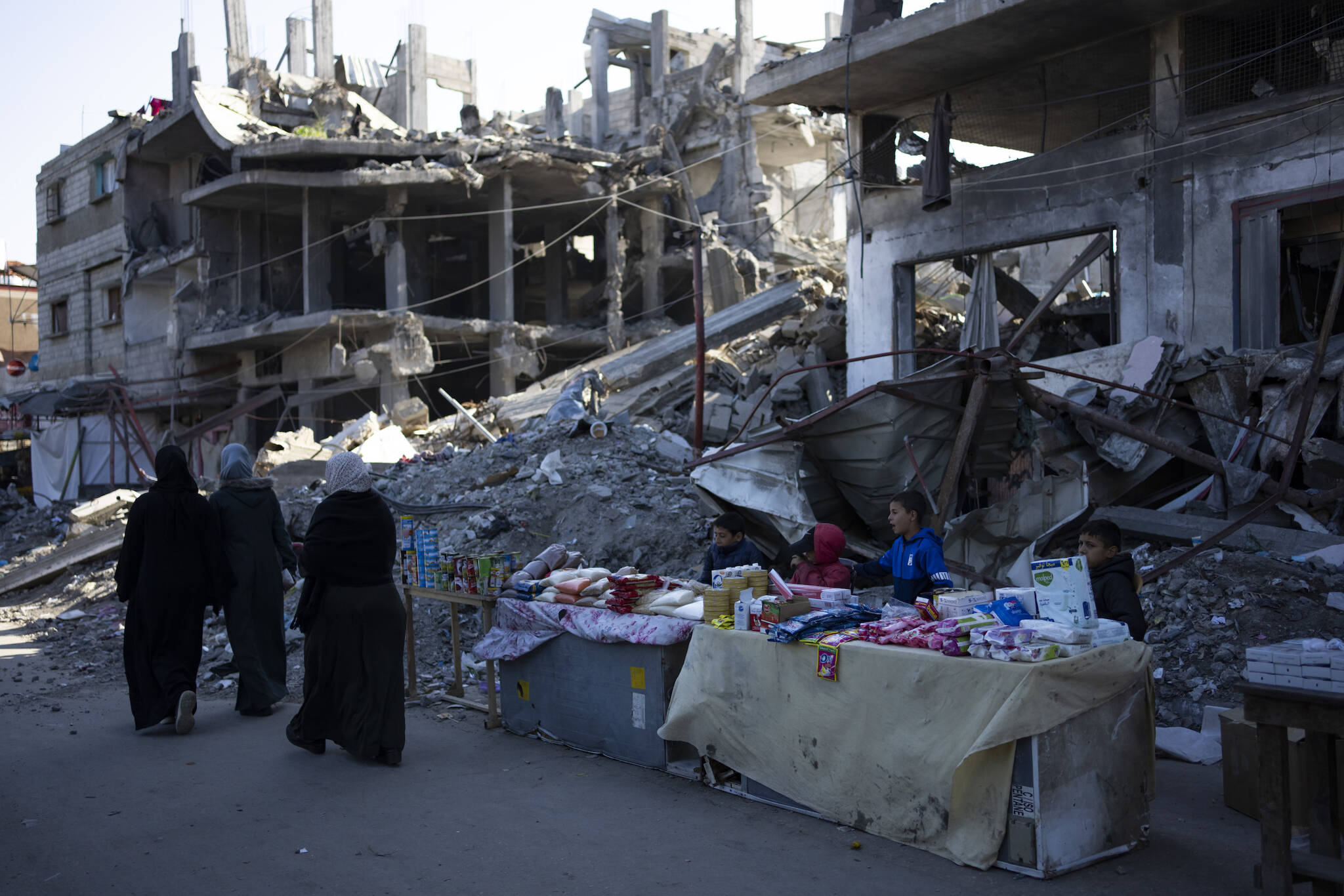In 1948 the United Nations gave the country of Palestine to European Jews escaping hundreds of years of pogroms, ending with the murder of six million Jews by the Nazis. These Jews were escaping hell.
Unfortunately, Palestine was inhabited by Palestinians — 30% were Jewish, 8% Christian and the rest Muslim — who had lived together for a very long time. Palestine had cities, an economy, cultural centers, world trade, education, agriculture. The Jews, desperate for safety and a country they could call their own, forcibly expelled 750,000 Palestinians to Jordan, Lebanon and other countries, blew up 500 villages, marching their occupants across the desert to Gaza which they surrounded with barbed wire and soldiers. Now an open-air prison of 2½ million dependent on food, clean water, medicine and fuel from their captors. Their lives have been difficult — no one I’ve met wants to be there. They long to “go home” to their villages.
Gazans have the highest level of education of any other group in the world and the lowest level of illiteracy. Many speak Hebrew and English — some are world peace advocates. Frustrated with the Palestinian Authority, in 2006 they voted in Hamas, hoping for change. There was never another election. Gazans grew to hate them — realizing that Hamas didn’t care about the lives of the Israelis or the Gazans.
Then Oct. 7 happened — with Hamas breaking out of Gaza and murdering about 1,200 Israelis — horrifying both the Israelis and the Gazans.
Eighty percent of Gaza is now rubble. Hospitals, schools, mosques, churches, universities, homes, museums are destroyed. Cultural genocide. A total of 1.6 million people — homes destroyed — are herded into the town of Rafah — which was already overcrowded — living on the streets or in tents waiting to be murdered. There is no place for them to go. There is one toilet for every 500 people. There is almost no food. Many are eating grass. Water purification has stopped — drinking water is mixed with sewage — also floating among and through the tents. Disease is rampant. Ten children a day are losing arms and/or legs — with nothing to kill the pain of amputation — or to stave off infection. A total of 12,300 children have been killed. 17,000 have been orphaned. There are two- and three-year-old children with burnt-off faces and amputated limbs who don’t know their names, and whose parents and relatives are dead.
In Ukraine and other places of war, there are ways to escape if one has the means and the desire. Not so in Gaza. There is no way out out of this prison. They have accepted that they will be murdered, and write their names and birth dates in pen on their and their children’s arms so people will know who they were. Israeli officials have asked other countries to allow them to immigrate. Expelling whole populations is a war crime.
This could have been prevented. Taking the time to know someone, we find there really is no “us” and “them.” There are least ten joint Israeli/Palestinian groups I know of where people from both sides come together, get to know each other and talk about peace. Abraham Lincoln once said that “the best way to get rid of an enemy is to make him your friend.” There are ways to disagree with someone other than murdering them.
• Dixie Belcher has lived in Juneau 83 years. In 1991 she spent six months in Israel, the West Bank and Gaza.

